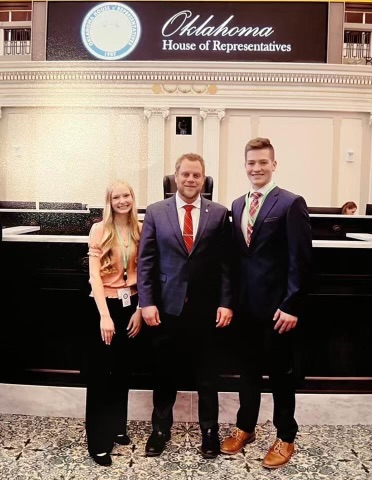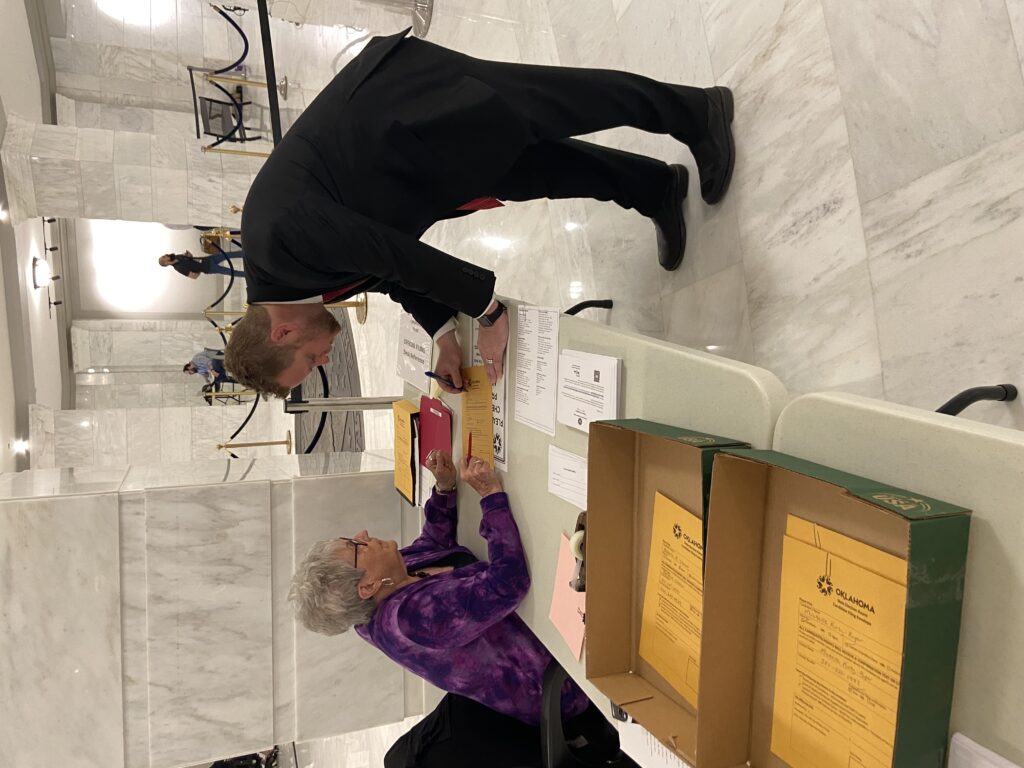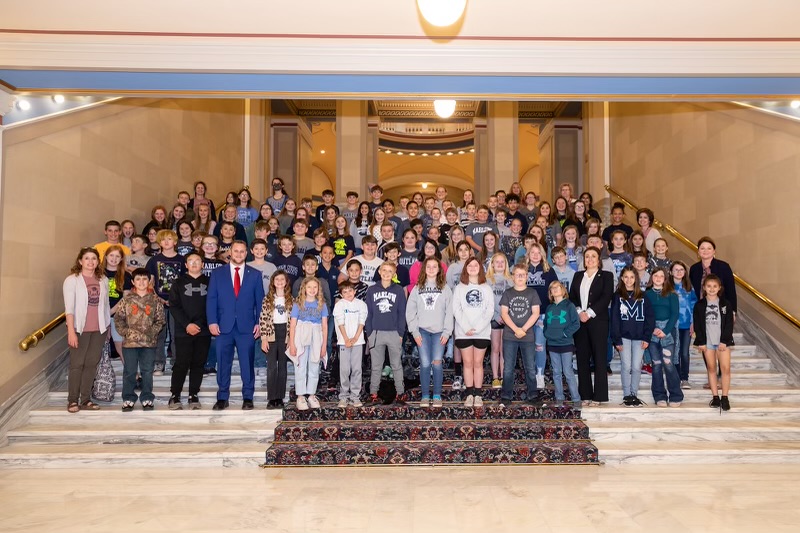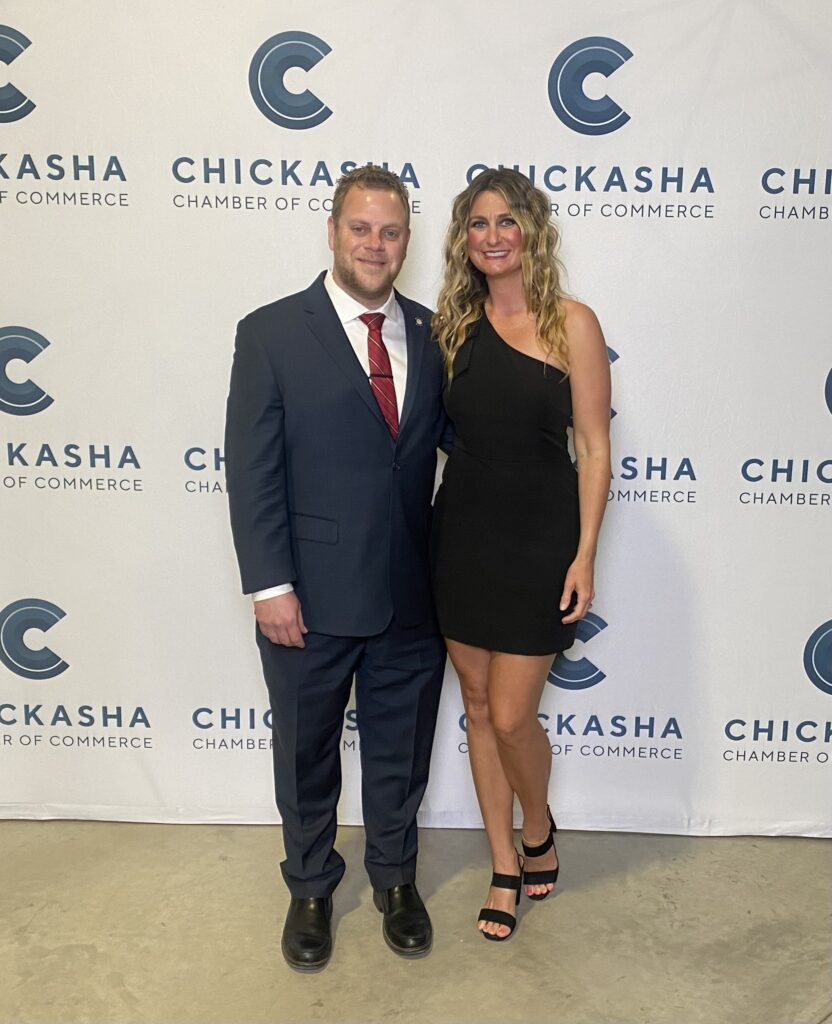Blog
State Capitol Update
May 2nd, 2022
Thursday was a major deadline week at the Legislature. It was our last day to pass bills through the opposite chamber. In the House, we spent hours each day on the floor voting on Senate bills over the past two weeks. We started with 327 Senate bills and resolutions and 271 made it thru the House committee process and then we ultimately approved 214 Senate bills off the House floor, six of which I was the House author of. Some of the bills will be sent directly to the Governor and others were amended in the House and now must return to the Senate for further consideration.
Below is a short description of the (6) Senate bills that I was the House author of that passed thru the House Floor.
- Senate Bill 1352 creates the Oklahoma Consumer Energy Choice Act. This bill prohibits any town, city or county from adopting an ordinance, rule or code which limits consumer access to an energy source that powers their vehicles. The free market should work according to consumer demands and offer consumers their choice of energy options. Some cities and counties across the country have banned certain types of fuel, which creates confusion for energy companies and consumers. The Governor signed this bill into law on Thursday, and it takes effect Nov. 1. This bill passed the House with a vote of 77-5.
- Senate Bill 1809 allows more wide open access to night hunting of coyotes and feral swine on agricultural land, except during deer gun season. This access is needed to help protect crops and livestock from nuisances and damage. This applies to the landowner, agricultural lessee or a designated agent with written permission from the landowner or agricultural lessee. SB1809 also increases the penalties for night poaching. It doesn’t restrict any current statutes on the hunting of coyotes and feral swine that we already have in place today. This bill passed the House with a vote of 80-5.
- Senate Bill 1856 was recommended by the Hydrogen Task Force led by OK Secretary of Energy Ken Wagoner that met during this past interim that I also had the opportunity to participate on. This bill would direct the Secretary of Energy’s office to create and administer a grant program for entities utilizing sequestration of carbon captured from production of hydrogen from natural gas. The grant program would only be subject to the authorization of federal dollars by the Legislature. This bill passed the House with a vote of 76-9.
- Senate Bill 1855 was recommended by the Hydrogen Task Force, which I had the opportunity to serve on this past year under the leadership of Oklahoma Secretary of Energy Ken Wagoner. It places the hydrogen fueling station or pump inspections and oversight under the authority of the Oklahoma Dept. of Labor. This bill passed the House Floor 85-0.
- Senate Bill 1691 provides that a conviction or criminal charge cannot be grounds for denial of a state-issued occupational license unless the underlying offense substantially relates to the duties and responsibilities of the occupation and poses a reasonable threat to public safety, health and welfare. Oklahomans reentering society after incarceration often face government-imposed hurdles to work, particularly for jobs that require an occupational license. Allowing these individuals to put their skills to work makes our communities safer, as obtaining employment significantly reduces the likelihood of recidivism. This bill passed the House Floor 81-4.
- Senate Bill 1224 was a request bill from the Oklahoma Dept. of Transportation (ODOT) that would increase the approval threshold cap from $500,000 to $1,000,000 for their Special Maintenance Projects. The change was based on inflation, which has posed a 30% increase in cost over the last 10 years for these projects. This will help ODOT from having to split projects up in multiple smaller projects to stay under current cap and could also result in approximately 6%-8% project cost savings, per ODOT estimates. This bill passed the House Floor 86-0.
With Thursday’s deadline completed, we will now start hearing Senate amendments to House bills. Bills amended in the opposite chamber must return to the chamber of origin so members can hear and vote on the final language. I have four House bills that I am the primary author of that passed the Senate with some minor amendments that I plan to accept in the House. If the author rejects Senate amendments, the bill goes to conference committee, where members may work out a compromise and return the bill to both chambers.
With May approaching, we’re staring down our May 27 deadline to adjourn sine die. We must pass the state budget for the next fiscal year by this date as well. While legislative leaders have been working on the budget for months, this is the time to really buckle down and negotiate with leaders in the Senate, the Governor’s office and heads of various state agencies.
Thank you for the honor of representing House District 51—God bless!







